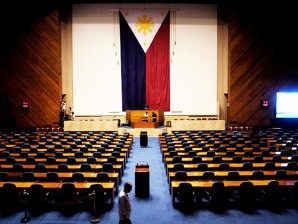MANILA, Philippines—Amendments to the antimoney laundering law, the removal of restrictions on foreign investments, and putting up monitoring and accountability mechanisms to track government incentives are among the nine priority measures the Aquino administration would push in the 16th Congress, a Cabinet member said on Monday.
Finance Secretary Cesar Purisima said the nine priority measures would be proposed to Congress “to answer key economic concerns of both the government and the private sector.”
For legislative action
The measures that would be put forward for legislative action at the start of the 16th Congress on July 22, which coincides with President Aquino’s State of the Nation Address, are:
— Amendments to the Build-Operate-Transfer (BOT) Law, or RA 7718;
— The Rationalization of the Mining Fiscal Regime and the Rationalization of the Fiscal Incentives Law;
— The Tax Incentives Monitoring and Transparency Act (TIMTA):
— The Customs Modernization and Tariff Act (CMTA);
— Amendments to the BSP Charter;
— Further Amendments to the Anti-Money Laundering Act;
— The Removal of Investment Restrictions in Specific Laws cited in the Foreign Investment Negative List (FINL);
— Amendments to RA 8974, otherwise known as the Act to Facilitate the Acquisition of Right-of-Way, Site or Location for National Government Infrastructure Projects and for Other Purposes;
— Amendments to the Cabotage Law. Cabotage refers to the exclusive right of a country to operate the air traffic within its territory.
According to the finance secretary, amendments to the BOT law would accelerate the Public-Private Partnership (PPP) program by directly addressing obstacles and issues encountered in its implementation.
“We propose to amend the inclusion of other PPP modalities such as joint ventures, concessions and management contracts as well as (enhance) provisions on unsolicited proposals, including the conduct of competitive challenge,” Purisima said.
“We also need to make sure the PPP governing board is properly accounted for in legislation. These measures would make sure that the lessons we learned from our PPP experience are institutionalized,” he added.
Repeal 26 laws
The finance department and the National Economic and Development Authority (Neda) said they would discuss with the Department of Trade and Industry how to make the country’s fiscal incentives system more efficient by repealing an initial 26 special laws that have provisions on tax incentives. These provisions may be contributing to wasteful tax incentives estimated at 1 percent of Gross Domestic Product (GDP), according to a World Bank survey.
Purisima said that a monitoring and accountability mechanism through the TIMTA bill would effectively account for the utilization of public monies, including those spent or used through the grant of tax incentives to businesses and activities.
“The Investment Promotion Agencies (IPAs) and Other Government Agencies granting tax incentives should submit their annual tax expenditures to the Department of Finance (DOF),” the Cabinet official said. “The DOF will then prepare an Annual Tax Expenditure Report that will be part of the BESF (Budget of Expenditures and Sources of Financing) reported to the President and to Congress.”
